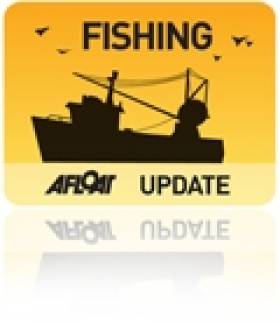Displaying items by tag: Michelle Gildernew
Study of NI Waters Shows Cod, Whiting at Lowest Levels
A new study of Northern Ireland's waters has found that stocks of cod and whiting are at their lowest ever recorded levels.
The Northern Ireland State of the Seas report, launched by NI environment minister Edwin Poots and agriculture minister Michelle Gildernew, showed that while herring and haddock stocks are improving, some species remain "seriously depleted", according to the Belfast Telegraph.
"This is a key time in managing our marine environment," said minister Poots. "We have an extremely rich and varied coastline with the marine species in our seas contributing to over half the overall biodiversity in Northern Ireland."
The report also evaluates the potential of other marine resources such as tourism, beaches, shipwrecks and renewable energy - all of which will contribute to new planning laws covering the marine environment.
The Belfast Telegraph has more on the story HERE.
























































